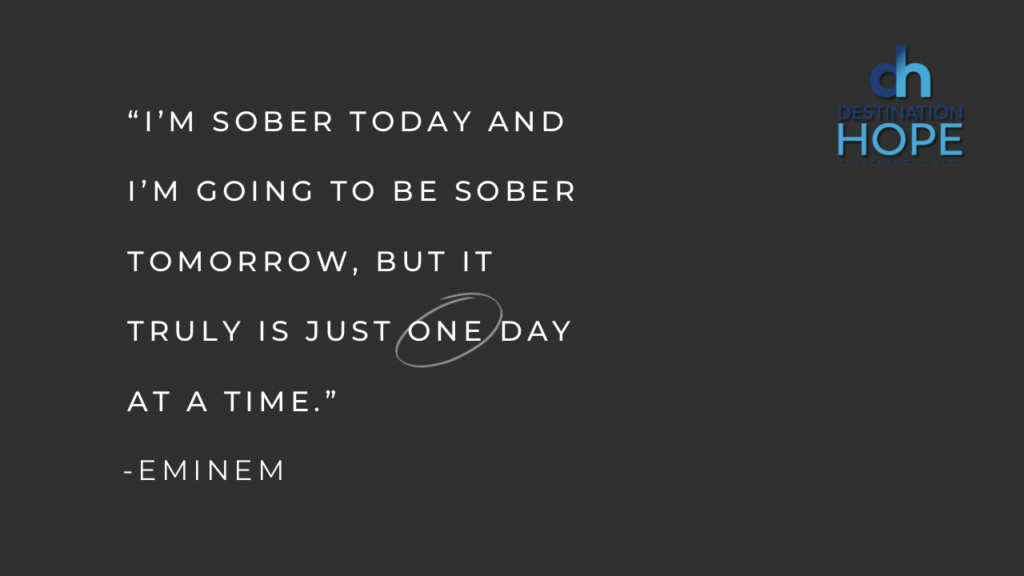Staying sober is a lifelong journey that requires commitment, strategy, and support. For many, the initial steps toward recovery involve detox and rehabilitation, but maintaining sobriety requires ongoing effort. Below are practical strategies to help you navigate this path, along with insights into how Destination Hope’s aftercare and relapse prevention can support your long-term recovery.
Develop a Strong Support System
A robust support system is essential for maintaining sobriety. Surrounding yourself with people who understand and support your journey can make a significant difference.
Join a Support Group
Support groups like Alcoholics Anonymous (AA) or Narcotics Anonymous (NA) provide a sense of community and accountability. Sharing experiences with others who have faced similar challenges can be incredibly reassuring and motivating.
Lean on Friends and Family
Communicate with your friends and family about your commitment to sobriety. Their encouragement and understanding can provide emotional support and help you stay focused on your goals.
Manage Triggers
Identifying and managing triggers is a crucial part of maintaining sobriety. Triggers can be people, places, or situations that increase the temptation to use substances.
Identify Your Triggers
Take time to understand what triggers your desire to use. This could be stress, certain social settings, or even specific people. Recognizing these triggers allows you to plan how to handle them when they arise.
Avoid High-Risk Situations
Whenever possible, avoid situations where you’re likely to encounter triggers. This might mean steering clear of certain social events or changing your daily routine to minimize exposure to stressful environments.
Practice Self-Care
Self-care is about nurturing your mental, emotional, and physical well-being. It’s a proactive way to manage stress and prevent relapse.
Physical Health
Engage in regular physical activity. Exercise can boost your mood and energy levels, reducing the likelihood of turning to substances for a pick-me-up. Eating a balanced diet and getting enough sleep are also critical components of self-care.

Mental Health
Mindfulness practices like meditation and yoga can help manage stress and anxiety. Consider seeking therapy or counseling to address any underlying mental health issues that may contribute to substance use.
Emotional Health
Cultivate hobbies and interests that bring you joy and fulfillment. This could be anything from painting to hiking. Engaging in activities you love can provide a healthy outlet for your emotions.
Find Healthy Coping Mechanisms for Staying Sober
Developing healthy coping mechanisms is essential for handling life’s ups and downs without turning to substances.
Stress Management Techniques
Learn stress management techniques such as deep breathing, progressive muscle relaxation, or guided imagery. These can help you stay calm and centered during challenging times.
Build New Habits
Replace old, unhealthy habits with new, positive ones. This might involve establishing a regular exercise routine, taking up a new hobby, or finding new social activities that don’t involve substance use.
Utilize Aftercare and Relapse Prevention Programs
Destination Hope offers comprehensive aftercare and relapse prevention programs designed to support your sobriety long after you’ve completed initial treatment.
Aftercare Programs
Our aftercare programs provide ongoing support through regular check-ins, counseling, and support groups. These programs are tailored to your individual needs, helping you stay on track and address any challenges that arise.

Relapse Prevention
Our relapse prevention programs focus on equipping you with the tools and strategies you need to maintain sobriety. This includes identifying potential triggers, developing coping mechanisms, and building a robust support network.
Get Help Today and Stay Sober
Staying sober is a continuous journey that requires dedication and support. By developing a strong support system, managing triggers, practicing self-care, and finding healthy coping mechanisms, you can maintain your sobriety and live a fulfilling life. Destination Hope’s aftercare and relapse prevention programs are here to support you every step of the way.
Call Destination Hope at 954-302-4269. Our dedicated team is here to provide the support and resources you need for long-term recovery.

